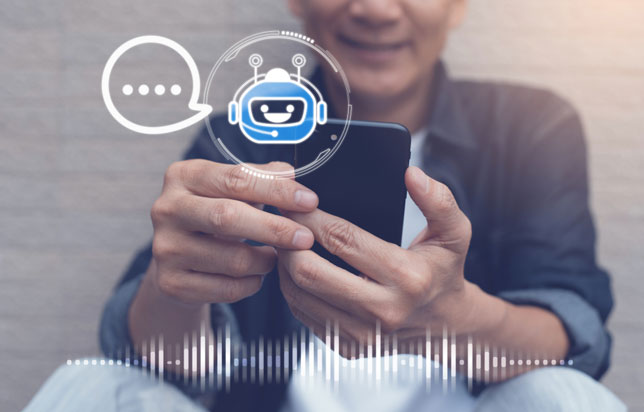Virtual TA Boosts Student Success at Georgia State University

In a recent study at Georgia State University, students who received timely messages about their coursework from a virtual teaching assistant demonstrated significant improvement in their academic success. Researchers conducted a randomized controlled trial using artificial intelligence chatbot technology from Mainstay (formerly AdmitHub) in an Introduction to Government course to provide students with reminders about course requirements and deadlines; customized feedback on their progress; weekly digests with upcoming due dates and estimated time to complete tasks; practice quizzes; coaching and encouragement; and information on campus support systems, tools and resources. Students in the program received two to three messages per week from the chatbot.
Overall, students who had access to the tool were 16% more likely to earn a B grade or higher, the researchers found. Among first-generation students, those who received messages from the chatbot earned final grades about 11 points higher than similar students who did not receive the messages, and were more likely to pass the class. Sophomores, junior and seniors (continuing students) who received chatbot messages achieved final grades about 7 points higher; were more likely to pass the class; were less likely to earn a D, fail or withdraw; and were less likely to drop other courses across the board. And students using the tool who had lower academic performance in high school were more likely to earn a B or higher and more likely to complete more credit hours at the university.
Student feedback was also positive: 92% said they would recommend using the chatbot in the course as well as extending it to other courses; 77% found the weekly digests helpful, and 70% found the chatbot messages helpful.
"We know that personalized input and feedback from instructors can have a transformative impact on students' academic performance, but that's not always easy to provide in large classroom settings," said Tim Renick, executive director of the National Institute for Student Success and professor at Georgia State University, in a statement. "With the support of a virtual TA that was able to provide just-in-time nudges and answer questions 24/7, students performed at significantly higher levels academically, with the biggest gains enjoyed by first-generation students in the course. This approach is demonstrating the potential of new technology like AI to build a better learning experience for students while reducing equity gaps."
"Too often, students' academic struggles have nothing to do with their intellect or commitment — but rather stem from logistical challenges, like competing family or professional priorities, that cause deadlines to slip," commented Drew Magliozzi, co-founder and CEO of Mainstay. "By using AI to open up new lines of communication with students through empathetic, contextualized conversation, colleges can not only provide an extra layer of proactive support to ensure that fewer things slip through the cracks — but also listen and respond to students at scale, to better ensure that every learner gets the support they need as they navigate their educational journey."
For more information, visit the Mainstay site.
About the Author
Rhea Kelly is editor in chief for Campus Technology, THE Journal, and Spaces4Learning. She can be reached at [email protected].